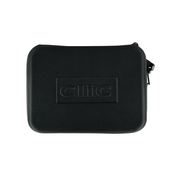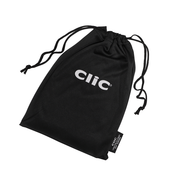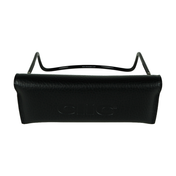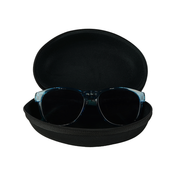When it comes to reading glasses, you may have a few questions before you feel comfortable making your purchase. A particular question many people have is if readers are as good as the prescription glasses you get from your optometrist? While it can be easy to assume they aren’t, readers have their benefits.
Continue reading to learn more about reading glasses, including if they’re as good as prescription options.
Why Need Reading Glasses?
Age brings us wisdom, experience, and much more, but it can worsen your eyesight. Many people lose their ability to focus on nearby images with time. You may need to focus harder to read your favorite book, leading to potential headaches and eye strain.
Reading glasses can be a solution when you struggle with close-up vision due to presbyopia.
Understanding Presbyopia
Presbyopia occurs when your eyes lose their ability to focus on nearby objects. It’s a gradually progressing problem that typically begins to develop around the time you turn 40. You may notice it’s harder to see letters from normal reading distances.
There are several common symptoms of presbyopia, including:
- Experiencing blurry vision at normal reading distances
- Having strained eyes or headaches after reading or completing other close-up tasks
- Holding reading material further away to make the letters appear clearly

You may worry if you start to notice these symptoms, but presbyopia is a natural part of aging. Your eye’s lens has to flex and change shape whenever you focus on nearby objects, but it loses this ability with time.
Presbyopia occurs when the lens hardens, becoming less flexible. The lens struggles to change shape to focus on close-up images, causing them to appear blurry.
Unfortunately, there’s no cure for presbyopia, but you can correct this condition with glasses. When treating presbyopia with glasses, you generally have 2 main options: over-the-counter reading glasses or prescription lenses.
What Are Readers?
Reading glasses, or readers, are ready-made glasses that magnify your vision, helping you more easily see words or images. They are typically mass-produced, giving you many different options to choose from.
Readers aren’t like the regular glasses you use every day—you typically use them in smaller bursts, such as reading or working on a close-up task.
What Are Prescription Glasses?

When you visit your optometrist for presbyopia, they may recommend glasses to correct this condition, such as bifocals, trifocals, or progressive lenses. The idea for all 3 of these options is the same: multiple prescriptions in a single lens. Your eye doctor updates your prescription, and you can enjoy clear vision from different distances.
Bifocals and trifocals feature 2 or 3 prescriptions in a single lens, separated by a visible line. Progressive lenses feature multiple prescriptions without the visible separation line, providing a seamless transition between lens powers.
Prescription glasses are great for providing effective vision from multiple distances, but they may not be for everyone. When cost is a factor, these options may be out of someone’s budget.
Interested in prescription glasses? Shop CliC Rx!
Are Readers as Effective as Prescription Glasses?
While you may assume readers aren’t as effective as prescription glasses, they can be for many people. Over-the-counter options should have no problems as long as the power of the lenses matches your prescription.
Some people with unique features may struggle with readers because they aren’t specially designed for their eyes like prescription lenses are. However, many people can benefit from reading glasses. The important thing when getting readers is to buy them from a trustworthy and reputable source.
There are a couple of tips to follow if you’re interested in readers:
- Match your prescription: Many readers have indicators stating their lens power. Options can range from +1 to +4 diopters, increasing in small increments. Take your time & find readers matching your current prescription.
- Test your glasses out: Don’t settle for readers that leave you with headaches or strained eyes. You can always choose a different pair providing greater comfort.
- Examine the quality of the glasses: Look at your frames & lenses for signs of distortion or other issues with the lens.
- If you’re unsure, speak with your eye doctor: Speaking with your optometrist can help if you’re worried about readers being right for your needs. They can recommend if your prescription is ideal for reading glasses & explain the pros & cons of your options.
Readers Can Be Right for Your Needs
When they match your prescription, readers can be an effective way to see close-up images more clearly. With many different over-the-counter reading glasses available, make sure you look for glasses that meet your needs. Always buy your readers from a trustworthy and professional supplier.
Contact your reading glasses provider if you have any questions about readers.
Educational Resources (by topic or phrase): Presbyopia, lens, bifocals, trifocals, or progressive lenses, as long as the power of the lenses matches your prescription, couple of tips to follow





